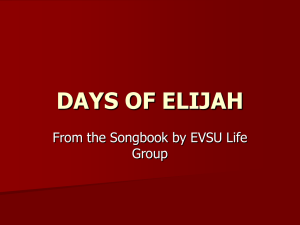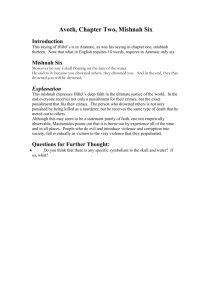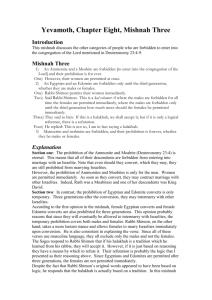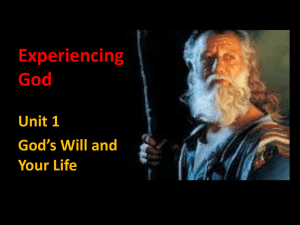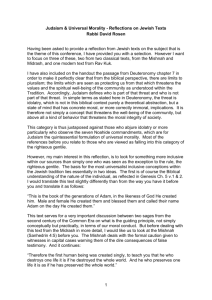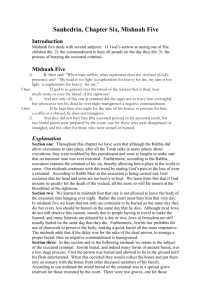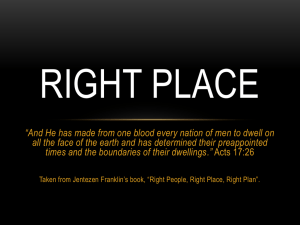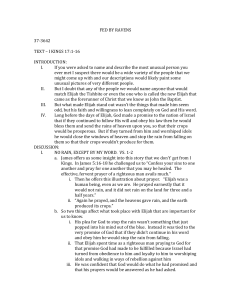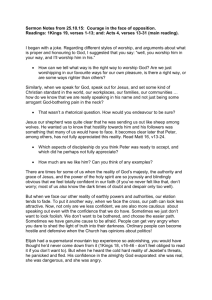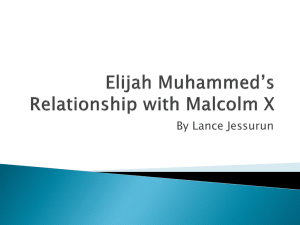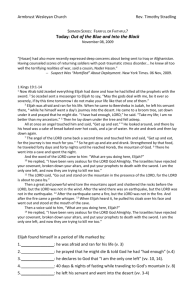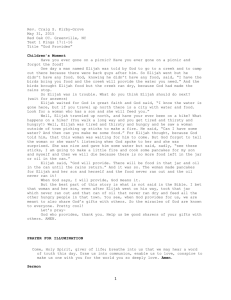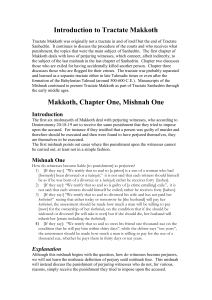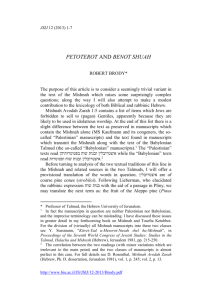Eduyoth 8-7
advertisement
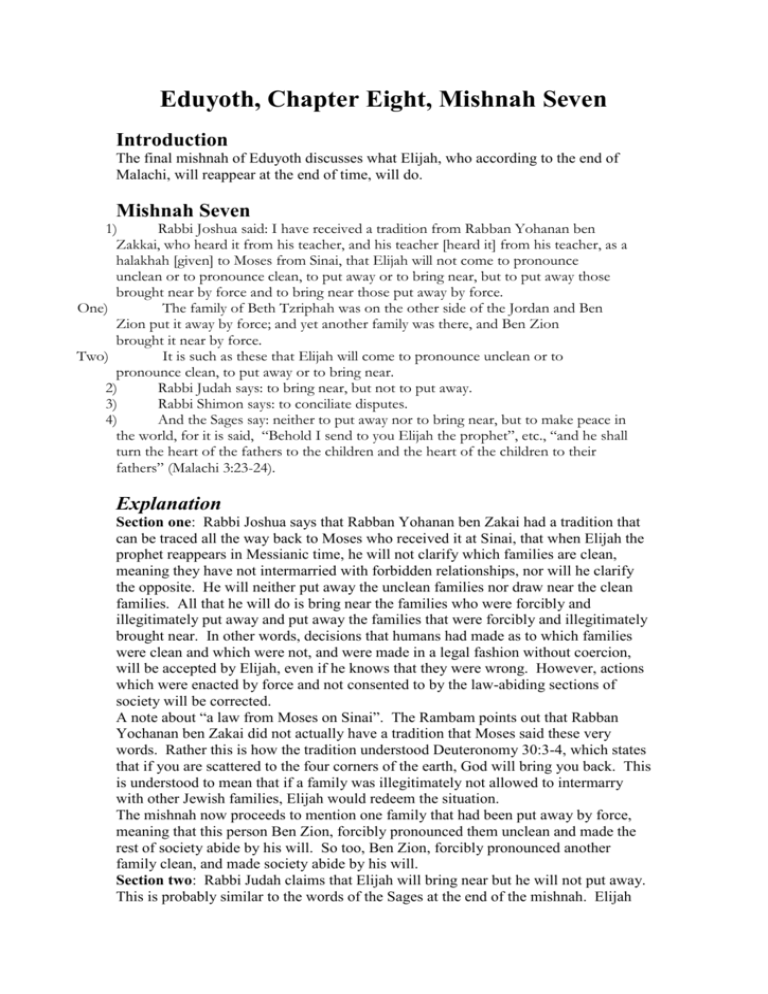
Eduyoth, Chapter Eight, Mishnah Seven Introduction The final mishnah of Eduyoth discusses what Elijah, who according to the end of Malachi, will reappear at the end of time, will do. Mishnah Seven 1) Rabbi Joshua said: I have received a tradition from Rabban Yohanan ben Zakkai, who heard it from his teacher, and his teacher [heard it] from his teacher, as a halakhah [given] to Moses from Sinai, that Elijah will not come to pronounce unclean or to pronounce clean, to put away or to bring near, but to put away those brought near by force and to bring near those put away by force. One) The family of Beth Tzriphah was on the other side of the Jordan and Ben Zion put it away by force; and yet another family was there, and Ben Zion brought it near by force. Two) It is such as these that Elijah will come to pronounce unclean or to pronounce clean, to put away or to bring near. 2) Rabbi Judah says: to bring near, but not to put away. 3) Rabbi Shimon says: to conciliate disputes. 4) And the Sages say: neither to put away nor to bring near, but to make peace in the world, for it is said, “Behold I send to you Elijah the prophet”, etc., “and he shall turn the heart of the fathers to the children and the heart of the children to their fathers” (Malachi 3:23-24). Explanation Section one: Rabbi Joshua says that Rabban Yohanan ben Zakai had a tradition that can be traced all the way back to Moses who received it at Sinai, that when Elijah the prophet reappears in Messianic time, he will not clarify which families are clean, meaning they have not intermarried with forbidden relationships, nor will he clarify the opposite. He will neither put away the unclean families nor draw near the clean families. All that he will do is bring near the families who were forcibly and illegitimately put away and put away the families that were forcibly and illegitimately brought near. In other words, decisions that humans had made as to which families were clean and which were not, and were made in a legal fashion without coercion, will be accepted by Elijah, even if he knows that they were wrong. However, actions which were enacted by force and not consented to by the law-abiding sections of society will be corrected. A note about “a law from Moses on Sinai”. The Rambam points out that Rabban Yochanan ben Zakai did not actually have a tradition that Moses said these very words. Rather this is how the tradition understood Deuteronomy 30:3-4, which states that if you are scattered to the four corners of the earth, God will bring you back. This is understood to mean that if a family was illegitimately not allowed to intermarry with other Jewish families, Elijah would redeem the situation. The mishnah now proceeds to mention one family that had been put away by force, meaning that this person Ben Zion, forcibly pronounced them unclean and made the rest of society abide by his will. So too, Ben Zion, forcibly pronounced another family clean, and made society abide by his will. Section two: Rabbi Judah claims that Elijah will bring near but he will not put away. This is probably similar to the words of the Sages at the end of the mishnah. Elijah does not come to cause pain by putting some families away. The only problem that he will rectify is families who should be brought near, not those who should be put away. Section three: Rabbi Shimon holds that when Elijah will come he will settle all the disputes between the Rabbis. Section four: The Sages hold that when Elijah comes it will only be to bring peace to the world. However, we should notice what peace means in this mishnah: a state of familial harmony. Peace doesn’t only mean the absence of warfare, rather it is more accurately interpreted as societal well-being, a reconciliation of parents with children. The Sages’ opinion is supported by the final verses of the book of Malachi, the very verses that teach that the Messianic age will be preceded by Elijah. Questions for Further Thought: How does Rabbi Shimon’s opinion compare with the other opinions in the mishnah? What does he hold about Godly intervention in human affairs? Congratulations! We have finished Eduyoth. By now, for those of you who have been learning since the beginning of the Seder, you have grown accustomed to this point, where we thank God for helping us to finish learning the tractate and commit ourselves to going back and relearning it, so that we may not forget it and so that its lessons will stay with us for all of our lives. However, I believe in this case we should give pause and offer an even greater hearty Yasher Koach (congratulations). This tractate is certainly one of the more difficult tractates, one which includes an extremely wide variety of topics. Oftentimes each mishnah or even each section of each mishnah contained a new topic. This has made the tractate difficult to follow. For those of you who nevertheless stuck it out, Yasher Koach. For those of you who gave up, do not despair. The remaining three tractates of Nezikin are much simpler. Tomorrow we begin to learn Tractate Avodah Zarah.
